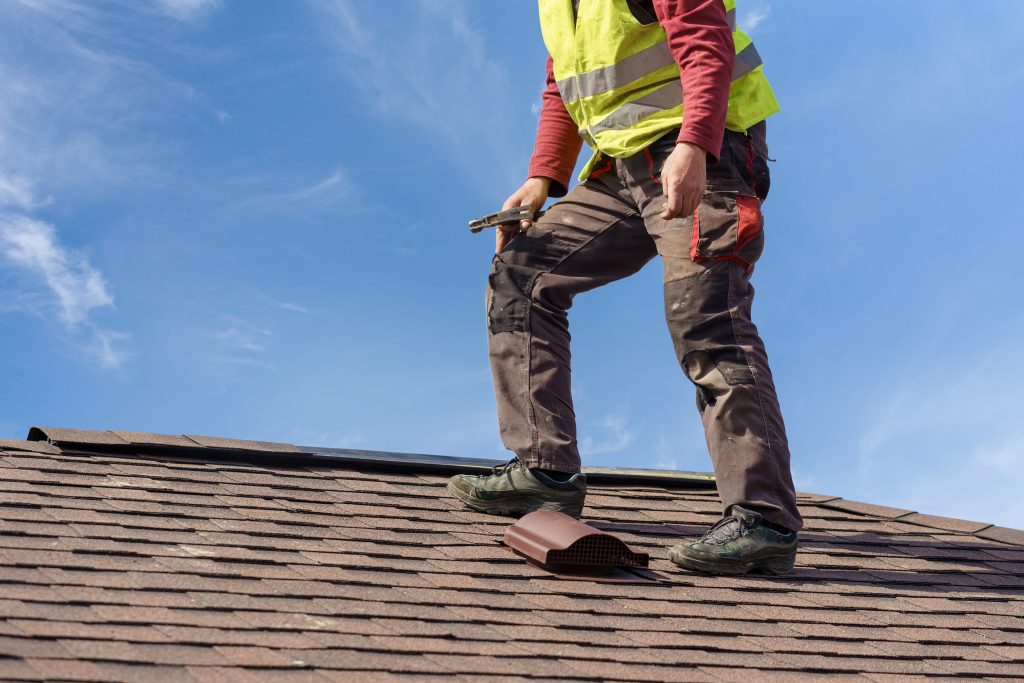
When thinking of how to keep your business running smoothly, the outside of your business matters just as much as the inside. One outside factor that can be easily overlooked is the condition of your building’s roof, taking into account its age, material, and history.
Proactively keeping the roof of your building in good condition reduces the risk of unexpected financial losses. Poor roof conditions can lead to various property and liability losses both the inside and the outside of your building.
Scheduling periodic roof inspections is a preventive maintenance investment in your business. Always hire a professional to do inspections and repairs. They have the proper tools, equipment and training to safely complete the job.
The Purpose of Roof Inspections
Roof inspections should be a routine part of maintaining your roof, since many issues can be difficult (if not impossible) to observe from the ground and can unknowingly become larger issues. Failure to inspect your roof can allow existing problems to worsen and may allow other problems to occur and compound over time.
Unaddressed roof damage can quickly lead to dangerous situations, such as a roof or building collapse. Such a catastrophic failure could result in injuries to the building occupants, property damage and business interruption. To prevent this type of loss, businesses should be aware of the signs of damage, such as the loss of structural integrity of a building displayed in cracked ceilings and walls, doors and windows that no longer close, or ceiling stains and leaks.
How Often Should You Conduct Roof Inspections?
Roof inspections should be routinely conducted at least twice per year, typically during milder seasons of the year such as spring and fall. These inspections will check and address potential damage or other concerns, before the occurrence of future weather events as the seasons change.
Roof Inspections Can Uncover the Following Problems
- Improper drainage
Improper roof drainage can be one of the most overlooked factors in the roof condition that can result in water and debris accumulation leading to water ponding. This can damage the roof covering, weaken the roof, and can eventually result in a roofing failure or roof collapse.
- Sagging
A sagging roof indicates substantial damage to the roof integrity. Improper maintenance or the roof age can also contribute to a sagging roof.
- Weather damage
Weather damage (particularly on flat rooftops in winter) can lead to problems not visible to the eye, particularly in places with hail, heavy rain and snow events. A great time to schedule a roof inspection would be the spring after snow and ice has melted to catch smaller issues before they become large scale roof projects.
- Underperforming materials
Lesser performing materials can be damaged more easily and wear faster and can become more costly to maintain in the long run.
- Broken or deteriorated shingles
If broken or deteriorated shingles are identified and replaced during your roof inspection, it may be time to plan for replacement of your roof before it becomes a bigger problem.
- Improper ventilation
Improper ventilation in your attic can cause excess heat and moisture to build up underneath the roof, potentially damaging the roof decking and roofing materials.
- Leaks
Roof leaks can damage ceilings and weaken a building’s integrity which can lead to damage to the building, inventory, contents and business interruption until the leak(s) and roof have been repaired.
- Security
Features such as roof hatches, doors, and skylights should be regularly inspected for damage to save your business from water intrusion or potential break-ins.
Why Periodic Roof Inspections Are So Important
Scheduling regular roof inspections at least twice each year can decrease potential repair costs and decrease or eliminate downtime and property loss. Roof inspections will also ensure proper water drainage and check for weaknesses in roofing materials. Your roof may also still be under warranty at the time of inspection, which can save you money in the long run.
Society Insurance Protects Your Business
Scheduling periodic roof inspections is a best practice for any property owner. Having your roof inspected before damage or liability incidents occur will protect your business and save you money long-term.
To find out more about how Society Insurance can help your business, get in touch with your local agent today.
Related Reading:
- 4 Ways to Prevent Roof Collapse This Winter
- How to Prevent Floods From Damaging Your Business
- 5 Reasons to Clean Your Gutters At Least Twice a Year
